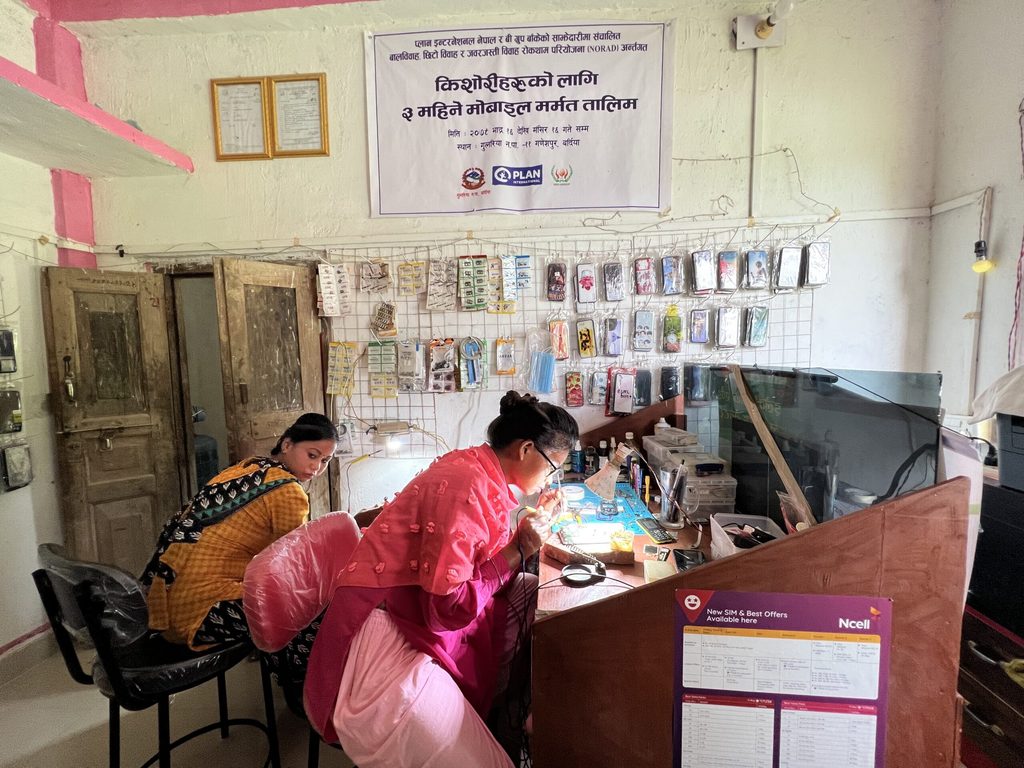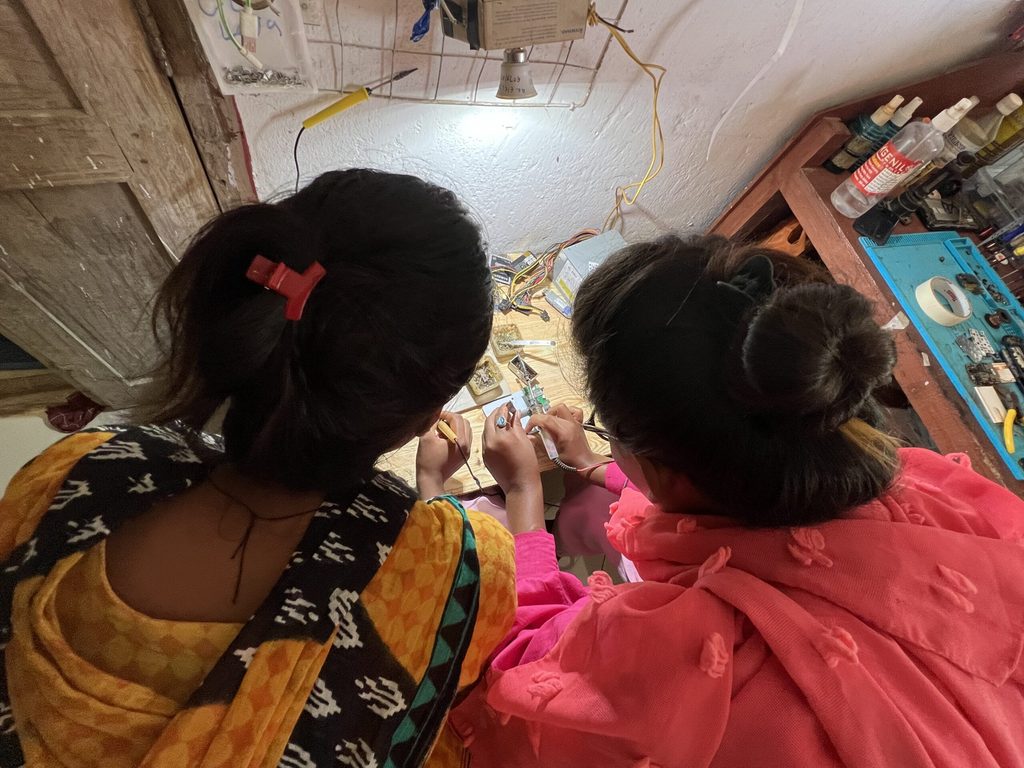Mobile phone repair training helps women into work
Samjhana has set up a mobile phone repair centre, is earning an income and is planning for a better future following skills training from Plan International.

“My parents tried to stop me when I asked their permission to join a training programme to learn how to repair mobile phones,” says 23-year-old Samjhana who comes from a small indigenous community in Bardiya district, western Nepal. “They thought it was a job only for men and that a woman wouldn’t be able to learn the skills and run a mobile repair shop.”
The second of 5 daughters, Samjhana’s paternal grandfather shunned his eldest son after he and his wife could not give him the grandson he wanted to continue the family line. “My grandfather humiliated my parents when one after another my mother gave birth to girls.”
Samjhana’s mother recalls the awful treatment she received each time she had another girl. “Other families are happy when they give birth to a girl child and welcome her as goddess Laxmi. But in my family, all my daughters are neglected and ignored by their grandparents.”
Girls face discrimination in rural Nepal
In indigenous communities like Samjhana’s, girls are either married at an early age or considered to be a burden. “My father-in-law looked at me with disgust, and said my children were a burden to the family as there are many mouths, but fewer hands to earn an income.”
Samjhana’s elder sister got married at 18. Her parents thought that marriage was only the option to bring happiness to their daughter’s life. Due to a lack of money, Samjhana had to stop her school studies after completing grade 12 and found work so that her 3 younger sisters could stay in school.
It’s important for girls to learn skills to start their own businesses and become financially independent.
Samjhana
“After I passed grade 12, I started teaching in a nearby school. After a few years, the school was closed. Then I started to work in people’s houses doing chores like cooking, cleaning, and everything related to the household.”
She continues, “I am only the hope for my parents. I have sacrificed my dreams to support them. I feel the torture my mother has been through. I try to console her and fight for our right to live a peaceful life.”
Gender inequality is one of the most pressing issues facing girls and women trying to find employment in Nepal. Women have significantly fewer opportunities than men to enter the labour market and, once they find work, they are less likely to progress in their careers than men and are usually paid less.
Skills for marginalised girls
Plan International is working with our local partner, Bheri Environmental Excellence (BEE), to provide gender-transformative vocational training for girls at high risk of early marriage. Funded by the Norwegian Agency for Development Cooperation (NORAD), the project works with girls from marginalised communities to offer life skills, entrepreneurship, and business plan training.
After taking part in the introductory classes, Samjhana became interested in joining the mobile repair training course. “I have only seen men repairing mobile phones. Only men own the mobile repair centres,” says Samjhana. “I wanted to challenge this stereotype and become the first woman mobile repairer in my community.”

Although enthusiastic about the course, after just a few days Samjhana was unsure whether or not to continue. “Her parents were the barrier for her,” explains project supervisor Shanta. “Her parents were not comfortable with her choice of course. They said they had never seen a woman running a mobile repair centre.”
“My parents did not want me to face criticism from the community. They did not want me to be stigmatised as the only woman in my village going against the norm,” explains Samjhana.
Shanta decided to visit Samjhana’s house to meet with her parents. “I had a series of meetings and follow-ups with Samjhana’s parents. They wanted Samjhana to have tailoring training instead so that she could open a sewing shop and not have to face any harsh comments from the community.”
“However, after seeing Samjhana in the mobile repair training centre, her parents were convinced that their daughter had the ability to do this work. I am satisfied that I cleared all their doubts.”
At the start of the 3-month training course, Samjhana says she was a bit nervous. “I was not confident about learning the names of the mobile phone parts. My hands were shaking when I first touched the motor board and used the indicators. I was worried about destroying all the materials. I burnt so many items.”
Boosting income
Following the training, Samjhana decided to set up a mobile repair centre with her friend Kamala who took part in the same training course. They are the only female mobile phone repairers in their community. “We opened a shop in the market area of our village. Plan International supported us with equipment including a computer, furniture, and mobile phone accessories.”
Samjhana says she is now earning between NPR 4000-5000 each month (€28-35). “Although our earnings are modest, I am optimistic about the future potential for growth. Using my initial investment, I purchased mobile chargers, cheap phones, and earphones to supplement my business.”
Word of mouth has been the girls’ primary means of promotion, and slowly but surely, her shop is gaining recognition. “Even my friends have inquired about its location. As my customer base expands, I anticipate a steady increase in income.”
“It’s important for girls to learn skills to start their own businesses and become financially independent before they get married. These skills will support us in every step and help us to earn respect within our communities,” Samjhana concludes.
Categories: Skills and work


